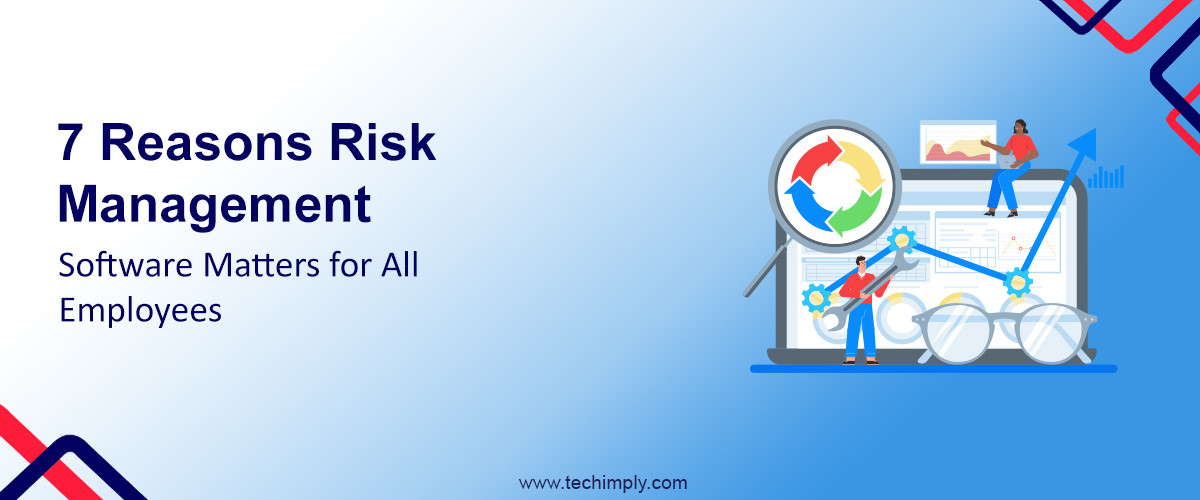In today's ever-changing business landscape, risk management has become a critical component of success. As businesses strive to navigate uncertainties and protect their assets, implementing effective risk management strategies is paramount. One powerful tool that has revolutionized risk management is risk management software. From improved decision making to enhanced compliance, risk management software offers a host of benefits that matter not only to risk managers but to all employees. In this article, we will explore ten reasons why risk management software is essential for businesses operating in the US market.
What is Risk Management Software?
Before we delve into the reasons why risk management software matters, let's first understand the importance of risk management itself. Risk management is the process of identifying, analyzing, and mitigating potential risks that could impact a business's objectives. It helps businesses safeguard their assets, optimize decision making, and ensure compliance with regulatory requirements. With the dynamic nature of the US market, effective risk management is crucial for maintaining a competitive edge and achieving long-term success.
Importance of Risk Management Software
In today's fast-paced business environment, the importance of risk management software cannot be overstated. These sophisticated tools aid organizations in identifying, assessing, and mitigating risks, ensuring that they can anticipate and respond to potential issues proactively. By offering real-time data analysis and reporting capabilities, risk management software helps in making informed decisions, minimizes exposure to unforeseen losses, and supports regulatory compliance, thus safeguarding the long-term health and stability of the enterprise.
Risk management software is constantly evolving to meet the changing needs and challenges of businesses. One of the latest advancements in this field is the integration of artificial intelligence (AI) technology. With AI, risk management software can now automate certain processes and tasks, making it even more efficient and effective.
Another key feature of modern risk management software is its ability to handle large amounts of data in a timely and accurate manner. With the ever-increasing amount of data being generated by organizations, it is crucial to have a reliable system that can collect, analyze, and report on this data effectively.
Furthermore, advanced risk management software also offers customizable features that allow organizations to tailor the software to their specific needs and requirements. This not only improves its usability but also ensures that the software can adapt to the unique risks and challenges faced by different industries and businesses.
Moreover, risk management software is now being integrated with other business ERP Software and CRM Software. This integration enables organizations to have a more comprehensive view of their operations, making it easier to identify potential risks and take proactive measures to mitigate them.
1. Enhanced Decision Making
One of the primary benefits of risk management software is its ability to provide real-time data and insights. By centralizing and automating risk data collection and analysis, employees at all levels can access crucial information to make informed decisions. Whether it's identifying emerging risks or evaluating the impact of potential opportunities, risk management software empowers employees to make proactive and strategic choices.
2. Improved Compliance
Compliance with regulatory requirements is a top priority for businesses in the US market. Failure to comply can result in penalties, legal issues, and reputational damage. Risk management software streamlines regulatory processes by automating compliance monitoring, documentation, and reporting. It ensures that businesses stay updated with changing regulations and enables prompt corrective actions, reducing the risk of non-compliance.
3. Mitigation of Financial Losses
Effective risk identification and mitigation are key to minimizing financial losses. Risk management software provides a systematic approach to identify and assess risks, allowing businesses to implement appropriate risk mitigation strategies. By proactively addressing risks, businesses can avoid costly financial pitfalls and protect their bottom line.
4. Increased Operational Efficiency
Manual risk management processes can be time-consuming and prone to errors. Risk management software automates and streamlines workflows, eliminating the need for manual data entry and repetitive tasks. This increases operational efficiency, allowing employees to focus on value-added activities and strategic initiatives.
5. Enhanced Communication and Collaboration
Effective communication and collaboration are vital for managing risks across an organization. Risk management software serves as a centralized platform, enabling seamless collaboration among employees. It facilitates the sharing of risk-related information, fostering a culture of transparency and accountability. By promoting open communication, businesses can proactively address risks and make informed decisions collectively.
6. Proactive Risk Identification
Early detection and prevention of risks are crucial for mitigating their potential impact. Risk management software helps in proactive risk identification by capturing and analyzing data in real-time. It enables businesses to spot emerging risks, assess their likelihood and impact, and implement appropriate risk mitigation measures before they escalate.
7. Better Resource Allocation
Optimal resource allocation is essential for maximizing efficiency and minimizing waste. Risk management software provides insights into the allocation of resources, helping businesses identify areas of inefficiency or underutilization. By reallocating resources based on risk priorities, organizations can achieve better risk management outcomes and optimize resource utilization.
Conclusion
In today's dynamic and complex business environment, risk management software has become a critical tool for businesses operating in the US market. From enhanced decision making to improved compliance, risk management software offers a range of benefits that matter to all employees. By leveraging the power of risk management software, businesses can proactively identify and mitigate risks, optimize operational efficiency, and achieve long-term success in an ever-changing landscape. Embracing risk management software is a strategic investment that empowers employees at all levels to make informed decisions, protect assets, and drive sustainable growth.


.png)
.png)


